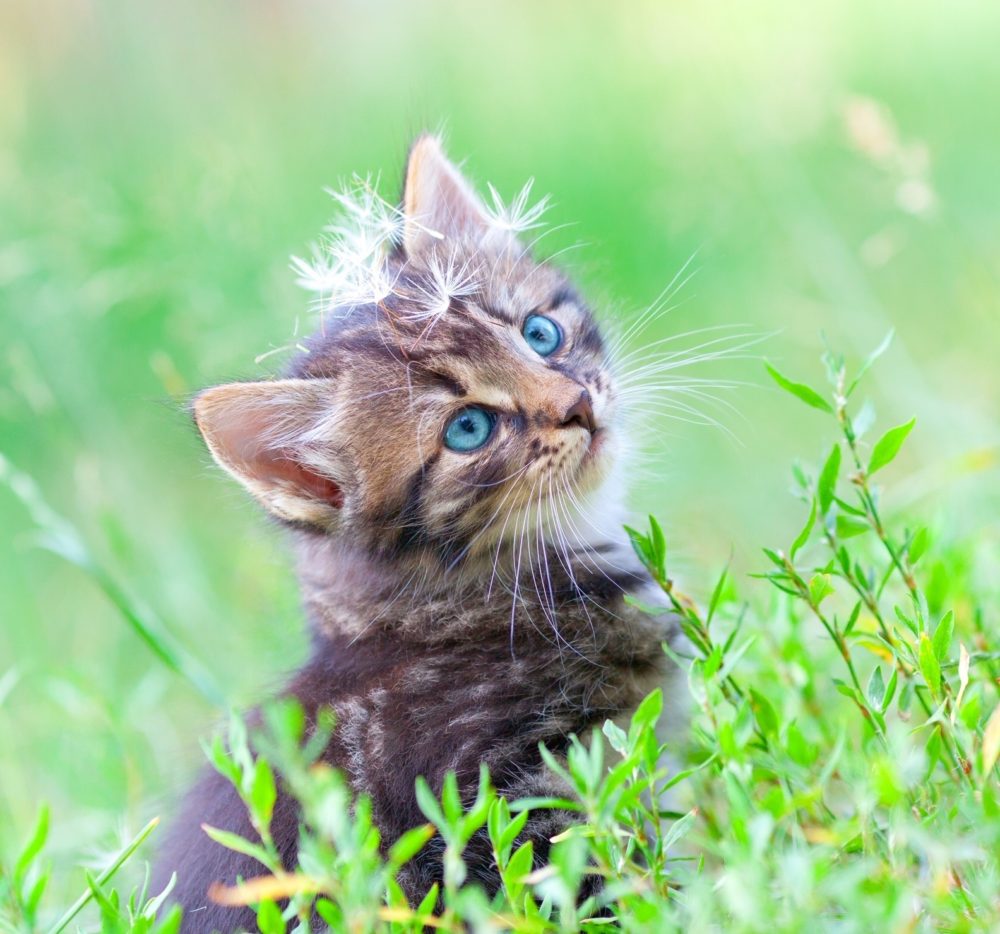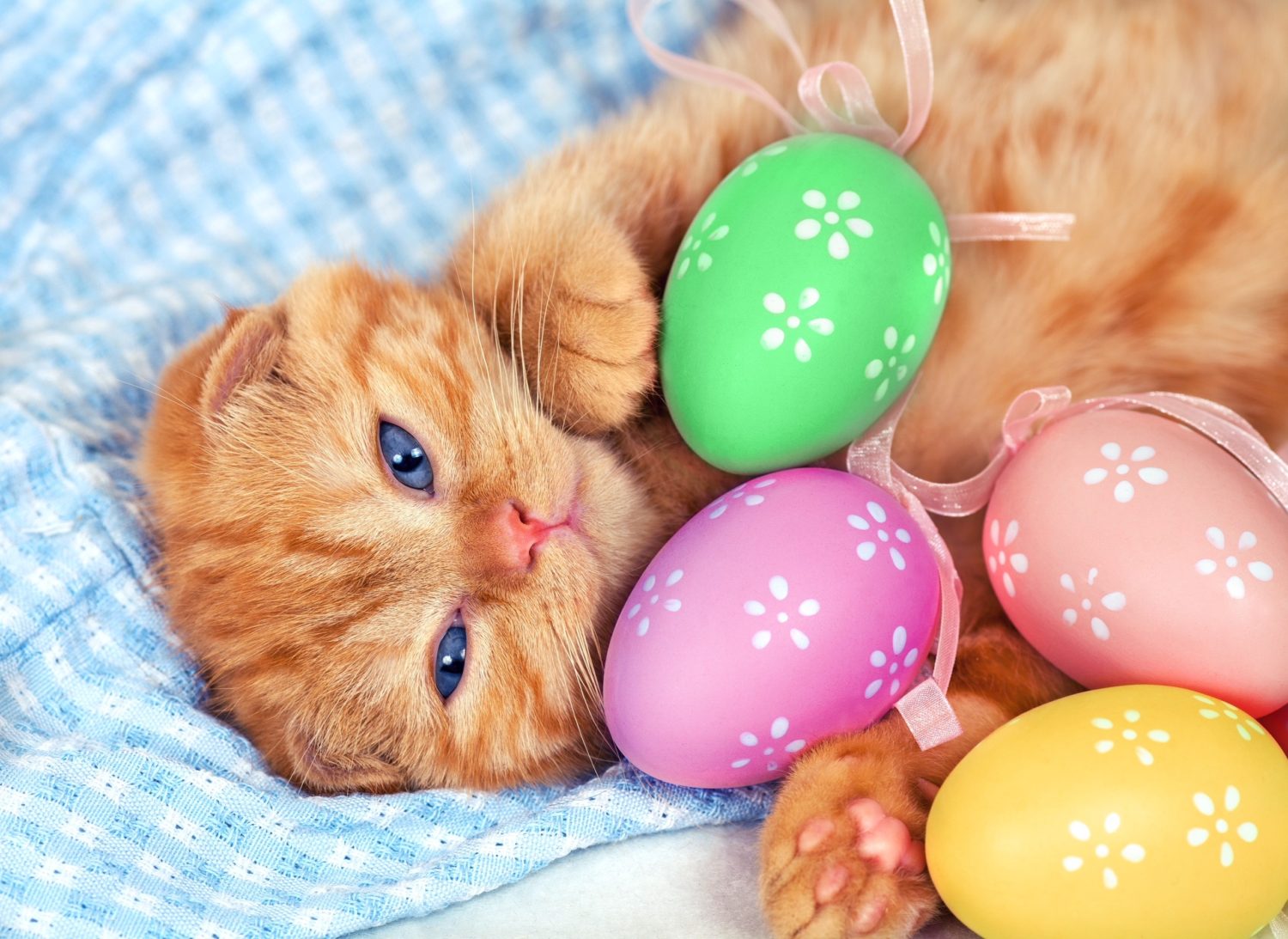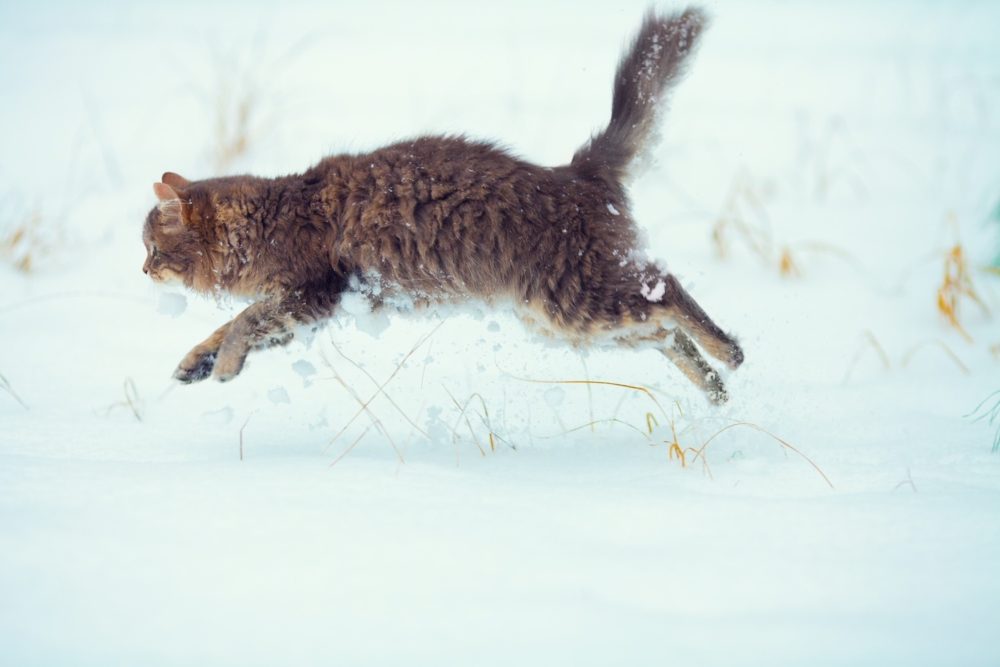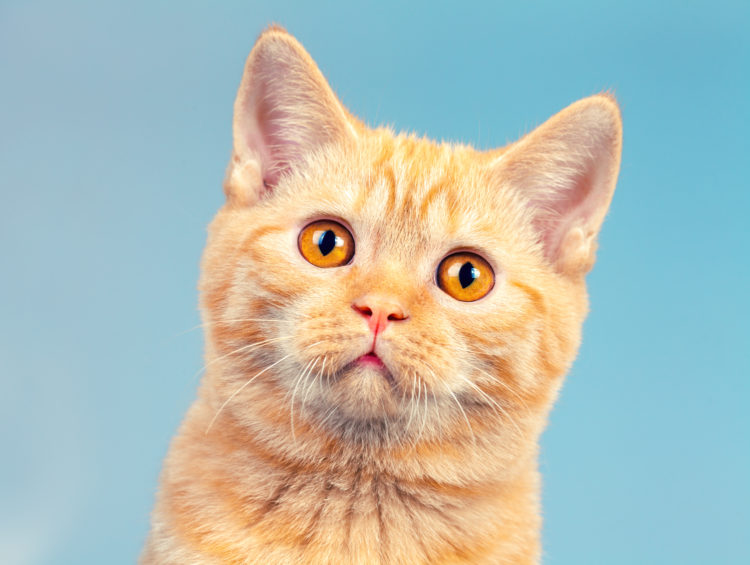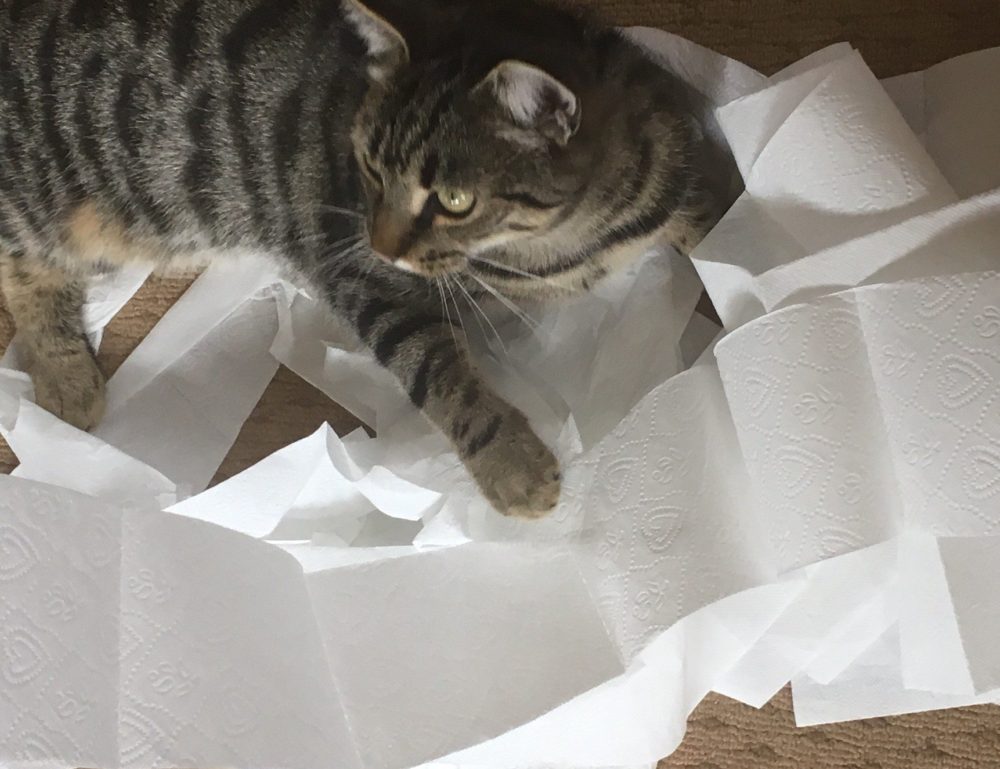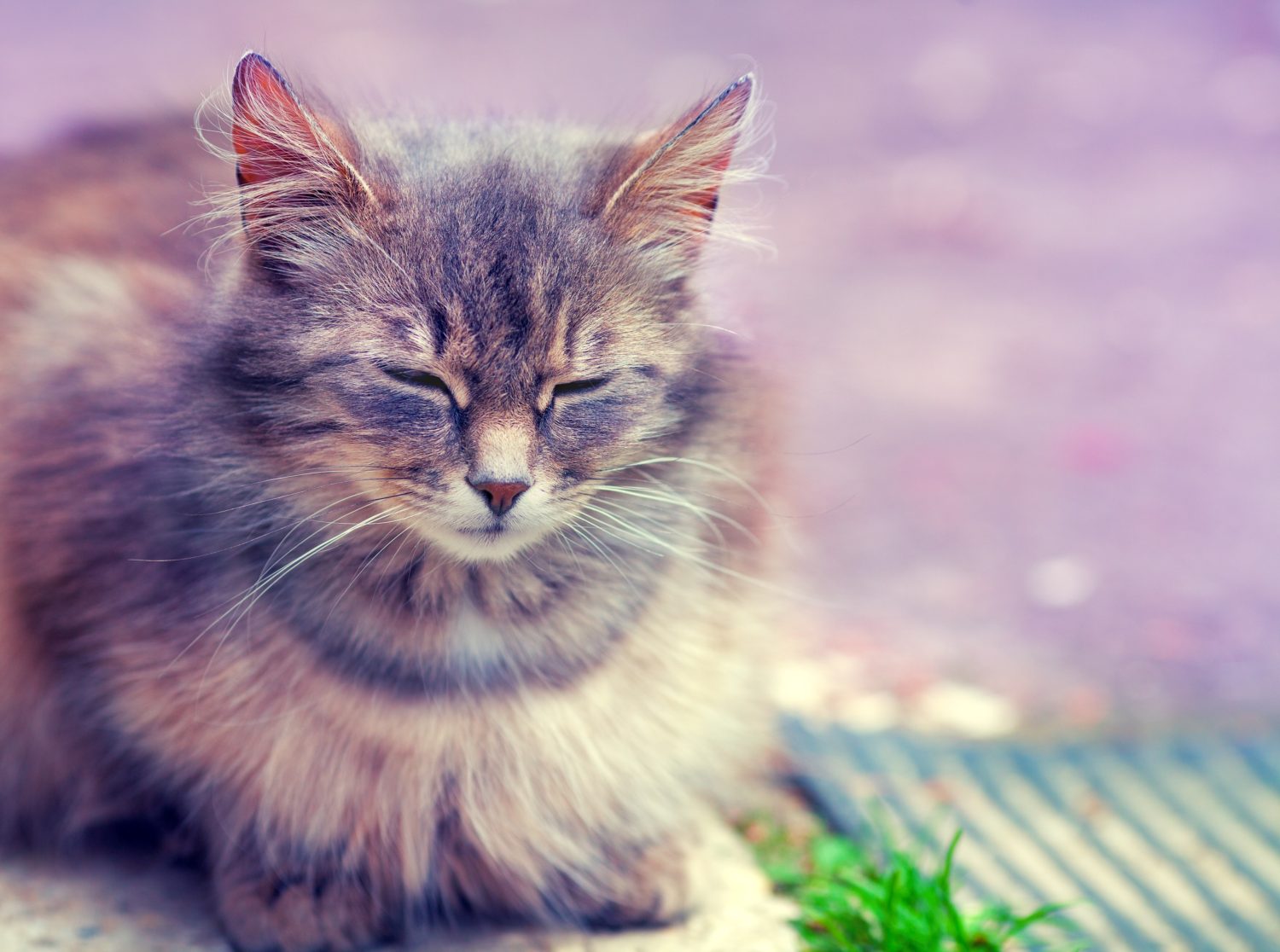
16 Top tips to ensure the senior years are comfortable for your old cat
When is a cat classed as a senior cat?
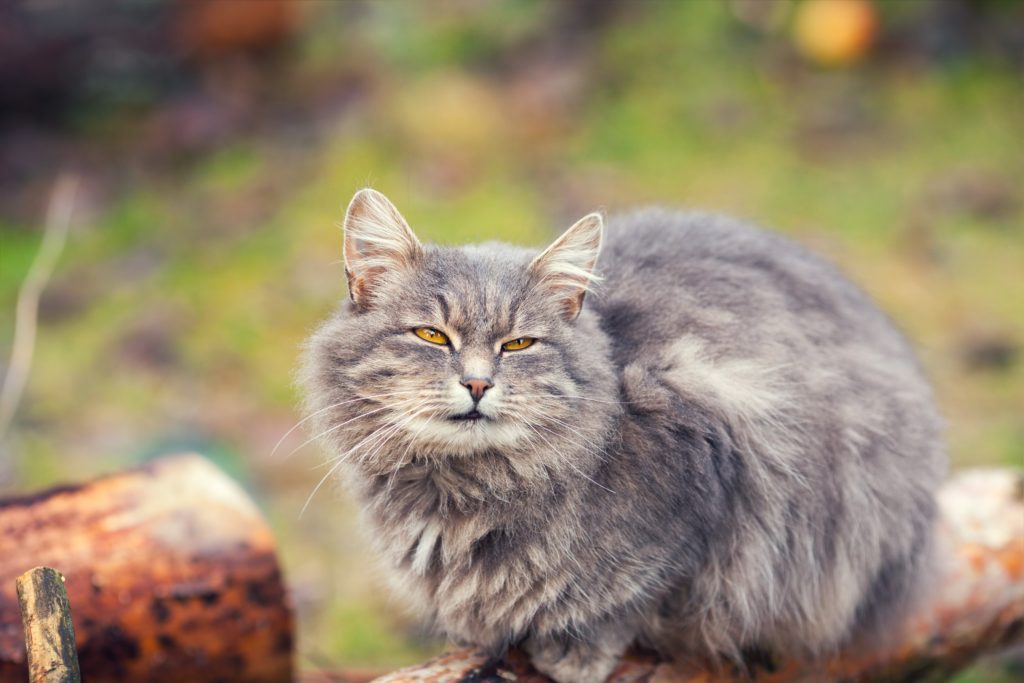 At the age of 10, you cat is officially classed as a ‘senior’ but with good health, a little extra care, and attention, your cat could live until 18, 19, even into her early 20’s. Although there is no need to be alarmed that your beloved cat is reaching old age it is a good idea to be aware of what ageing signs to look out for and what can be done to ensure that the senior years are as comfortable as possible. Firstly, let’s look at the signs to look out for in the older years of a cat’s life:
At the age of 10, you cat is officially classed as a ‘senior’ but with good health, a little extra care, and attention, your cat could live until 18, 19, even into her early 20’s. Although there is no need to be alarmed that your beloved cat is reaching old age it is a good idea to be aware of what ageing signs to look out for and what can be done to ensure that the senior years are as comfortable as possible. Firstly, let’s look at the signs to look out for in the older years of a cat’s life:
Signs of ageing in cats aged 10-12 years:
- At this age cats tend to have slowed down and be less active. Your cat may climb less and be less likely to jump onto higher surfaces.
- Health problems may begin to develop, typical conditions include arthritis, diabetes, kidney disease and hyperthyroidism.
- Your cat may become more easily distressed in changes to routine or if faced with a new environment.
- More time may be spent sleeping, increased naps are a common factor in ageing cats.
- Whereas your cat used to run to greet you as soon as you came through the door, as she gets older, she may not immediately run to you.
- Play may not be initiated as often as it used to.
- Loud or strange noises, unfamiliar people or situations may cause your cat to become more fearful and this may be communicated to you in a more vocal manner by your cat. Increased vocalisation in elderly cats can be a sign of many things including Feline Cognitive Decline, trouble finding her way around especially at night, decrease in hearing or pain. It is important to realise it not an increase in “conversation”.
Signs of ageing in cats aged 13-15 years:
- Most cats in this age bracket will be moving considerably slower, be less active and will sleep more.
- Your cat will still need human interaction in the form of gentle play and stroking and cuddling time, but it is very common for them to want to spend more time by themselves. If your household is a busy one with children and/or other pets, it is important that everyone respects the changing needs of their elderly cat member.
- Hearing and eyesight may deteriorate at this age.
- Other health problems often seen in cats this age is a form of dementia. In this case routine, and minimal changes, will ease daily life can help keep your cat calm.
- Senior cats may feel the cold more therefore warmth and comfort is key especially in the colder months.
Signs of ageing in cats aged 16 years plus:
- A 16-year-old cat is equivalent to an 80-year-old human and this can be a useful reference as a guide to how your cat may be feeling.
- Your cat is likely to be thinking and moving at a much slower pace, and it is not uncommon for cats to become confused at time. She will probably be vocalising more too.
- Plenty of sleep and less interaction with others is very common.
- Forgetting to use the litterbox from time to time is to be expected in the later years. Changes in litter box habits may also be down to a health condition or a decline in mobility and unable to get into the litter box.
- Very old cats will still groom but may not do so as often, or as thorough as in the earlier years of her life.
Cats are very clever at hiding symptoms of illness or ageing therefore knowing what to look out for can be key in ensuring any problems are caught early. It is important to take your cat for check-ups with your veterinary at least once, preferably twice a year. If you have any concerns or notice any changes in your cat’s behaviour or health at any time, it is important to consult your veterinary for advice.
But the good news is that with a little extra care and attention your cat’s senior years can be happy, comfortable and you can still enjoy the beauty of your friendship and companionship.
Here are our 16 Top tips to ensuring ease and contentment for your cat in the later years:
1. Adjust your cat’s diet to suit their needs
Just like us humans, as a cat’s body ages the nutritional needs and requirements change. It is highly recommended you seek the advice of your veterinary before adjusting your cat’s diet. There is a huge variety of foods on the market that are specifically targeted for senior cats. As a cat ages their sense of taste and sense of smell may diminish, and this may affect their appetite and the amount they consume. Providing good quality tasty food will certainly help. For a cat that seems to have lost the taste for food, once any underlying medical conditions have been ruled out, we have some great ideas that could re spark their appetite:
Soup for cats
 Very often, elderly cats require feeding little and often. Smaller but still nutritious, portions of soup may tantalize the taste buds and be easier to eat. Discover more about the benefits of soup in our article ‘Is it ok to give my cats soup / broth?’
Very often, elderly cats require feeding little and often. Smaller but still nutritious, portions of soup may tantalize the taste buds and be easier to eat. Discover more about the benefits of soup in our article ‘Is it ok to give my cats soup / broth?’
Smoothies and juices for cats
As long as the toxic fruit and vegetables are avoided, the nutritional value that fresh fruit and vegetables contain will be beneficial to your cat. They are certainly not intended to substitute their carnivorous diet, but merely to supplement it. They can benefit from the fibre that’s extracted from whole fruit and vegetables by pouring a little over their dry food or mixing it with their existing food or simply giving them a few spoonful’s’ in a bowl to lick as a treat. You can find some delicious cat friendly smoothie recipes at ‘Cat Smoothies and Juices’
If your cat is a member of a multi cat household, being the older, slower cat, may mean that they don’t get a fair share of the food. Keep an eye on feeding times and if needed provide your older cat with a little extra at additional times.
2. Positioning of food bowls for comfortable access
As your cat becomes older, she may find it a little more difficult to bend down to eat from her bowl from a flat surface. If you notice this, consider placing feeding and water bowl on a little platform or changing the bowls to ones adapted for higher feeding. Adjusting the feeding height will make it more comfortable for your cat especially those with arthritis or neck and back problems. A home-made platform can be easily constructed or there are endless choices of platform and raised feeding bowls on the market to suit all budgets.
3. Accessible fresh clean water
 Access to fresh clean drinking water is important for cats of all ages. Just like the humans, if cats do not ingest enough water, they may become severely dehydrated therefore water is essential to your cat’s health. Dehydration can occur in any combination of reduced fluid intake, increased liquid loss, or lack of water in the diet. A cat requires 44 to 66ml of water per kilogram of body weight per day. Older cats are in the group who are more susceptible to dehydration.
Access to fresh clean drinking water is important for cats of all ages. Just like the humans, if cats do not ingest enough water, they may become severely dehydrated therefore water is essential to your cat’s health. Dehydration can occur in any combination of reduced fluid intake, increased liquid loss, or lack of water in the diet. A cat requires 44 to 66ml of water per kilogram of body weight per day. Older cats are in the group who are more susceptible to dehydration.
If the water bowl is too far, or not easily accessible, there is a risk that your cat simply won’t drink enough. To reduce this risk, place several wide bowls of water or water fountains in various locations. If your cat has access to more than one floor in your house, ensure there is water access on each level.
If you notice that your cat isn’t drinking enough water, try the following:
- Switch to a mostly wet-food diet
- Put ice cubes in your cat’s food
- Serve small and more frequent meals
- Make sure the bowls are refilled regularly
- Multiple water locations
- Purchase a water fountain
- Try glass, ceramic or stainless-steel bowls rather than plastic
- Flavour the water by adding a little tuna juice or a little low salt chicken broth to the water may just entice them to drink.
If you would like further information about how much water your cat needs to drink, please read our article ‘How much water does a cat need’.
4. Regular check-ups with the vet
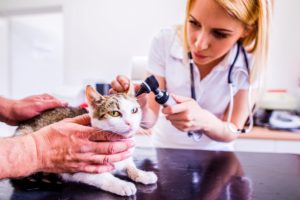 As cats become older, they become more susceptible to health issues such as arthritis, kidney problems, diabetes etc, therefore annual or preferably twice-yearly check-ups with your vet are important. The earlier any illness or health problems are caught the easier it will be to treat or manage. Your vet will be able to monitor your cat’s weight at these visits too to ensure there is no weight loss or gain as well as checking teeth, gums, nails and coat condition.
As cats become older, they become more susceptible to health issues such as arthritis, kidney problems, diabetes etc, therefore annual or preferably twice-yearly check-ups with your vet are important. The earlier any illness or health problems are caught the easier it will be to treat or manage. Your vet will be able to monitor your cat’s weight at these visits too to ensure there is no weight loss or gain as well as checking teeth, gums, nails and coat condition.
Cats are extremely clever at hiding illness or pain. Mention any changes you may have noticed in your cat – physical or behavioural – these changes can help identify any underlying problems. If you have any concerns in between regular check-up appointments regarding your cat’s health, please do not hesitate to contact your vet for advice.
5. Dental check-ups and teeth brushing
As mentioned above, at regular check-up appointments your vet will check your cat’s teeth and gums. Older cats are most at risk of gum disease, which if left untreated, can lead to loss of teeth. Adult cats have 30 teeth in total which are made up of 12 incisors, 10 premolars, 4 canines and 4 molars. If these adult teeth are removed, damaged or fall out, they will not be replaced.
Most cases of tooth loss in adult cats is due to oral problems, mainly gum disease. A build-up of plaque caused by allowing food particles and bacteria to accumulate along the gumline, can develop into tartar. Left untreated, this tartar builds up under the gum and separates the gum and the teeth. Bacteria can then infiltrate and grow and can cause irreversible damage. Prevention is better than cure and if your cat is showing any signs of dental problems then a visit to your veterinary is essential.
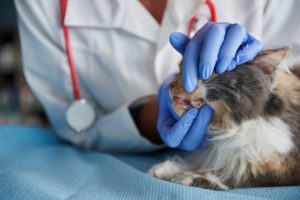 Gingivitis is considered the earliest stage of periodontal disease and is reversible. The gums will be inflamed and there will be some plaque present, but the gum surface will be smooth. A visit to the vet at this stage could avoid a great deal of oral discomfort for your cat.
Gingivitis is considered the earliest stage of periodontal disease and is reversible. The gums will be inflamed and there will be some plaque present, but the gum surface will be smooth. A visit to the vet at this stage could avoid a great deal of oral discomfort for your cat.
We have a great article on caring for your cat’s teeth and how to best feed your cat if loss of teeth is unavoidable, ‘Best foods for a toothless cat’.
Always seek professional advice if you have any concerns regarding the oral health of your cat. A balanced healthy diet, regular oral care and taking your cat to the vet at the first sign of any tooth, gum or oral problems will help ensure your cat has pain free, healthy teeth during her adult life.
6. Ensure litter box is easily accessible
Arthritis, aches and pains can make it difficult for a cat to climb in and out of her litter box. This could result in your cat eliminating outside the box. Ensure the litterbox can be accessed comfortably by your cat. Try placing multiple litter boxes in the house too, especially if your cat has access to various floors. An ageing cat who suddenly starts having litter box issues needs to be checked over by a vet to ensure there are no medical issues that are contributing to this change. Also speak to your vet if you notice any changes in your cat’s stool or urine output.
7. Provide plenty of warm cosy places for nap times
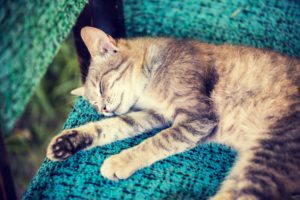 As cats get older, they feel the cold more therefore ensure there are plenty of warm, snug, comfortable places available. Use soft blankets, an old sweater, pillows or cushions for added warmth and comfort. Ageing joint and bones will benefit from restful naps and sleeps. Ensure that they can access these nap areas easily.
As cats get older, they feel the cold more therefore ensure there are plenty of warm, snug, comfortable places available. Use soft blankets, an old sweater, pillows or cushions for added warmth and comfort. Ageing joint and bones will benefit from restful naps and sleeps. Ensure that they can access these nap areas easily.
8. Keep to a regular routine
Every effort should be made to ensure a calm, relaxed environment for your ageing cat and providing a consistent daily routine will help achieve this. Senior cats in particular prefer routine. The possible decreased mobility, a decrease in vision and hearing can cause a feeling of insecurity. Keeping to a constant daily schedule will help your cat steer her way through the day and her environment in a way she feels safe and secure.
9. Position nightlights in the house
Vision, and in particular night vison, can deteriorate in senior cats. Your vet will check for any changes in your cat’s vision in their check-ups but be aware if your cat’s pupils are always widely dilated or if your cat is reluctant to enter a dark room, this can signify problems with night vision. If your cat is free to roam outside at night, it would probably be advisable to keep her indoors at night if there is a deterioration in night vison. Simply installing night light around the house can enable your cat to roam safely and confidently during the night.
10. Give them a helping hand with their grooming
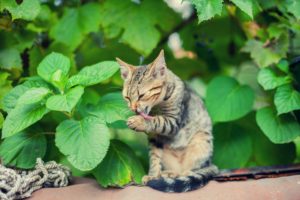 Cats are extremely clean animals and grooming is usually done thoroughly and meticulously. Apart from keeping their coats in a pristine condition, grooming is used as a self-soothing, relaxing process. But as joints become a little stiffer, and if arthritis sets in, this can prevent your cat from being able to groom properly. Helping your cat to groom by gently brushing the fur will help keep their fur in a clean and shiny condition. It can also be very relaxing for your cat – and you! Setting aside a little time each day to brush her coat will certainly be comforting and beneficial to your cat.
Cats are extremely clean animals and grooming is usually done thoroughly and meticulously. Apart from keeping their coats in a pristine condition, grooming is used as a self-soothing, relaxing process. But as joints become a little stiffer, and if arthritis sets in, this can prevent your cat from being able to groom properly. Helping your cat to groom by gently brushing the fur will help keep their fur in a clean and shiny condition. It can also be very relaxing for your cat – and you! Setting aside a little time each day to brush her coat will certainly be comforting and beneficial to your cat.
11. Keep their mind and bodies active with stimulating toys and games
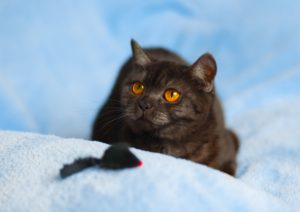 It is important to keep cats stimulated – physically and mentally – as they grow older. Your cat may not have quite the same energy levels as her younger days, but they can still enjoy play time. Tailor the games to suit your cat’s age and physical abilities. Here are our top tips for play times with older cats:
It is important to keep cats stimulated – physically and mentally – as they grow older. Your cat may not have quite the same energy levels as her younger days, but they can still enjoy play time. Tailor the games to suit your cat’s age and physical abilities. Here are our top tips for play times with older cats:
- Puzzle feeders are great to keep the mind active. You could have a go at making some home-made ones or there are many to choose from on the market.
- Certain games, such as fishing pole toys, will encourage your cat to use its predator instincts, helping to keep the brain active and sharp.
- Buy some new toys to stimulate their interest. Also, alternate toys so that they don’t get bored with the same ones.
- Light exercise will benefit conditions such as arthritis by helping to keep the joints moving and as supple as they can be. Fishing pole toys and laser light toys are great for this. You can adapt the play to suit the mobility and energy levels of your cat.
- Monitor your cat during playtime and swap play time for cuddling time when your cat shows signs of becoming tired or slowing down.
- If the time comes when your cat is simply too weak or too ill to play use the time to simply sit them on your lap, talk to your cat and stroke them.
Check out our article ’18 Games to play with your cat’ for some ideas.
12. Try horizontal scratching posts
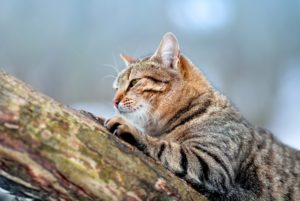 Scratching is a natural need in cats which helps them to:
Scratching is a natural need in cats which helps them to:
- mark their territory with the scent glands that are on their paws,
- remove any debris or material from their claws,
- stretch their limbs and exercise muscles, and
- as an emotional release, be that happy, excited, stressed or anger.
As your cat gets older it may become more difficult to use vertical scratching posts, but it is still important they have somewhere to exercise this urge. Therefore, why not make or purchase a horizontal scratching post for your cat? Having both vertical and horizontal posts available will allow your cat to make a preference for herself.
13. Provide steps or stairs for easier access
If your cat’s favourite window seat or cat tree position is becoming harder for her to access – improvise! Make a stepping stone of steps for easier access. If the time comes when this is proving too painful or difficult for your cat, create new, easy access spaces for her using her favourite cushion or blanket for familiarity.
14. Educate children and family members about your cat’s changing needs
If all the family members, particularly younger members of the family are aware of the changing needs of your ageing cat then everyone can play a part in ensuring the best possible environment for your cat. Even other cat members of the family may need reminding of changing needs and requirements of elder cats. The younger cats may try to challenge for the head of the cat household position but they can be gently reminded that the elder cat is still the boss by ensuring she gets your attention and any treats first, before the younger members.
15. Discover the gentle benefits of reiki and other holistic therapies for your senior cat
Alternative and natural therapies are becoming increasingly popular across the pet world. If you have any concerns regarding your cat’s health or wellbeing your veterinary should always be your first port of call. However holistic therapies can be so useful especially in dealing with behavioural and emotional changes which can be so prevalent in senior cats.
Bach Flower remedies
 Bach Flower remedies are particularly gentle but very effective. Dr Edward Bach discovered a total of 38 Flower Remedies and the most famous of all the flower remedies – Rescue Remedy. Each remedy, or combination of remedies, can help heal different emotional issues. Animals, just like us humans, can feel scared, anger, grief, happiness and joy. We have a very detailed article dedicated wholly to Bach flower remedies – ‘Bach Rescue Remedy for Cats – and other useful Flower remedies for cats’.
Bach Flower remedies are particularly gentle but very effective. Dr Edward Bach discovered a total of 38 Flower Remedies and the most famous of all the flower remedies – Rescue Remedy. Each remedy, or combination of remedies, can help heal different emotional issues. Animals, just like us humans, can feel scared, anger, grief, happiness and joy. We have a very detailed article dedicated wholly to Bach flower remedies – ‘Bach Rescue Remedy for Cats – and other useful Flower remedies for cats’.
Flower remedies can be helpful for senior cats for a wide range of conditions. The following list is by no means exhaustive but a guide to the most commonly used remedies in senior cats:
Beech – this remedy can help with cats that become irritable when their routine is disrupted, and unexpected events occur.
Crab Apple – can help with depressed cats when it seems linked to a loss of their physical abilities. It is a remedy of acceptance.
Walnut – can ease the progression though different stages of a cat’s life.
Clematis – this remedy can help when a cat forgets to use the litter tray, and seem generally inattentive to its surroundings
Elm – When normal things simply seem too much to cope with then Elm can help.
Olive or Hornbeam – either of these remedies is great for cats that seem constantly tired.
Wild Rose – when a cat stops grooming and seems to have lost its zest for life.
Oak – when cats that keep plodding on regardless reach a stage of unable to go on, Oak can be helpful.
Reiki
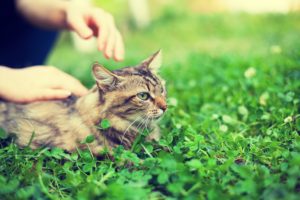 Reiki is a gentle hands-on healing technique that is completely safe and natural, non-invasive with no side effects. The practitioner heals by placing hands directly on the body and this light touch channels healing energy from the hands to the body. Reiki can be practised on cats, on any animal, in the same way as humans. All cats are different but generally, cats react well to reiki healing. Cats respond well to the gentle touch that a reiki session brings, and they seem especially sensitive to this energy. Some of the conditions that reiki can help cats with include:
Reiki is a gentle hands-on healing technique that is completely safe and natural, non-invasive with no side effects. The practitioner heals by placing hands directly on the body and this light touch channels healing energy from the hands to the body. Reiki can be practised on cats, on any animal, in the same way as humans. All cats are different but generally, cats react well to reiki healing. Cats respond well to the gentle touch that a reiki session brings, and they seem especially sensitive to this energy. Some of the conditions that reiki can help cats with include:
- an injury
- allergies
- anxiety and behavioural issues
- epilepsy
- osteoarthritis
- asthma or lung disorders
Some cat owners have also found reiki helpful and comforting to aid a calming and peaceful passing when then end of time has come for their beloved cat. Discover more about reiki in our article ‘Reiki for cats – Everything you need to know’.
There are so many more therapies to choose from. Our article ‘Natural and alternative healing for cats’ provides a brief introduction into some of the therapies available.
16. Be gentle, patient and enjoy your time together
The bonds between cats and their owners is simply beautiful. Whilst so much fun and high active play was to be had during the kitten and younger years, a gentler pace of play and petting can be equally rewarding. Gently helping your cat with grooming, petting and enjoying listening to her musical purring will be enjoyed by you and your cat. Be mindful of your cats’ slower pace and respect their needs whether be it for extra cuddles for security or their need for extra sleep and alone time. Do not ever get angry when accidents happen, your cat is as likely to feel as upset as you. Help your cat access her favourite places being aware of her possible reduced agility. Simply enjoy each other’s company and make the golden years of her life the best you possibly can.
Senior cat ultimate top 10 shopping list
Many of the things we have suggested to make life easier for your elderly cat can be done at little or no cost or can be home made. But I know many of us, and this is certainly true in our household, simply love to spoil our cats. So, with elderly cats in mind here are our top 10 favourite finds:
1. Raised feeding bowls for easier access
This will provide comfortable meal times for your cat. Made from natural bamboo construction with removable bowls that allow you to fill your pet’s food and water bowls without moving the whole unit.
2. A water fountain for easy access to water
We love Catit products and this Catit flower water fountain is perfect for easy access drinking water for your cat. It allows 3 different water flow settings and offers maximum oxygenation for fresher, better tasting water.
3. A tooth brush & toothpaste for maximum oral care
This toothpaste is designed for cats – do not ever use human toothpaste for cats. This one is cheese flavoured, to make cat teeth brushing as easy and enjoyable as possible. The soft bristles allow gentle brushing for health and comfort, whilst effectively help to remove plague, tartar and food debris.
4. A comfortable bed
A senior cat will appreciate a warm snug comfortable place to sleep. We couldn’t resist going for absolute luxury when researching cat beds. Cats like to feel safe and a raised rim creates a sense of security and provides head and neck support, while the super-soft PP cotton filling offers joint and muscle pain relief.
5. As well as a comfortable bed, your senior cat will want other warm, comfortable areas to rest. Cushions, blankets and mats can all make a favourite spot extra comfortable. We like this Thermal cat mat for warmth and comfort.
The Milliard Ultra Soft Thermal Cat Mat is a premium cat mat that works by reflecting the cat’s own body heat to create a cosy place to snuggle up. It is made from high quality material and is easy to clean as it’s machine washable.
6. Nightlight to help your senior cat roam confidently and safely at night.
These are just your normal household nightlights, providing glare-free lighting to guide your cat in the dark. They automatically turns on only when ambient lighting becomes insufficient. They are energy efficient and aren’t expensive to run and may provide that little extra confidence and security whilst your cat roams the house at night.
7. A grooming brush to help your senior cat with her daily grooming.
This Hertzko’s Soft Brush will gently remove loose hair, and eliminates tangles. The soft and gentle plastic bristles have rounded ends for comfort and gentleness. Brushing and massaging your cat with a good grooming brush will help maintain a healthy coat, increasing blood circulation and leaves your cat’s coat soft and shiny.
8. A new toy.
Nothing can beat the classic toy on a wand cat toy. This toy, by far, is our cat’s favourite toy. A simple toy but ticks all the boxes for bringing out your cat’s hunting instincts, keeping their minds stimulated whilst exercising too. The added little bell make a great little feature and is sure to capture your cat’s attention.
9. A puzzle feeder to stimulate your senior cat.
Another Catit product we love is this Catit Senses 2.0 Digger for Cats. It is made up of multiple tubes that stimulate natural pawing behaviour in a fun manner. Treats and dry food and can placed in the tubes for your cat to tease out.
10. A horizontal scratching post.
This horizontal scathing post will ensure your older ca can still satisfy her scratching needs with ease. Made from fibrous and durable woven sisal it naturally inspires scratching. This item has rubber feet for stability and to prevent slipping while on the floor.
Further information
We hope you’ve found this article useful. Here are some other related articles which you may find helpful:
Should I let my cat outside at night?
Cat communication – a complete guide
Natural and Alternative Healing for cats
The energetic power of cats and their spiritual healing
Books for further reading:
The book ‘Caring for an Elderly Cat’ by Dr Sarah Carney & Vicky Halls is dedicated to Senior cat and how to maintain their wellness.
